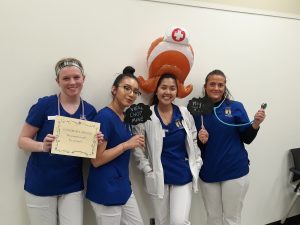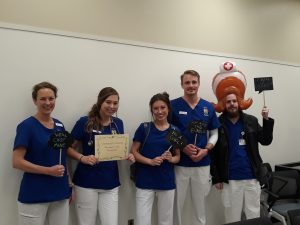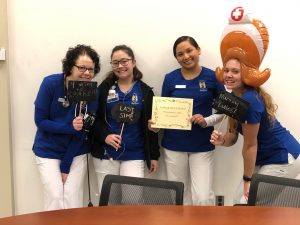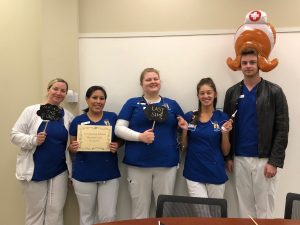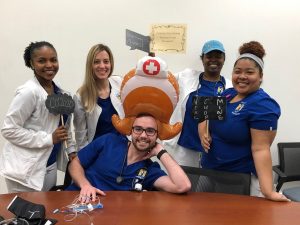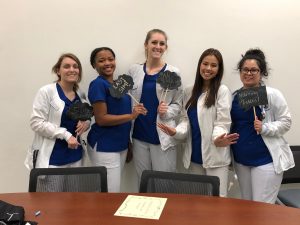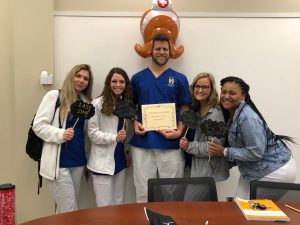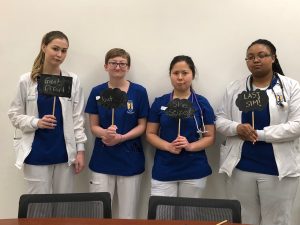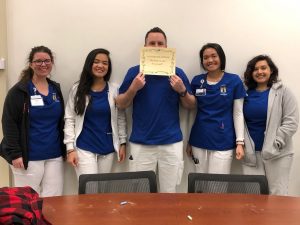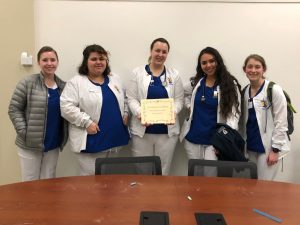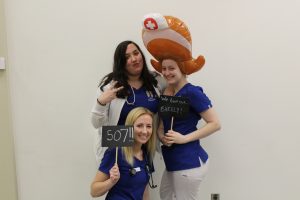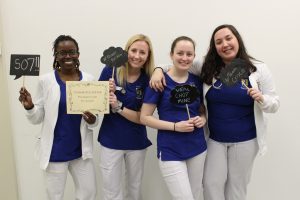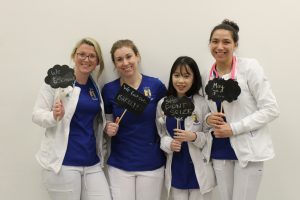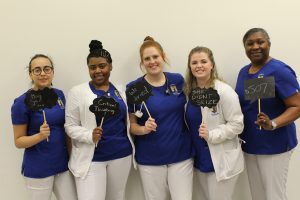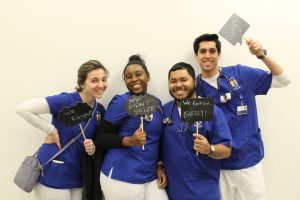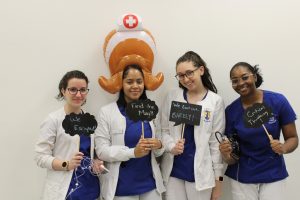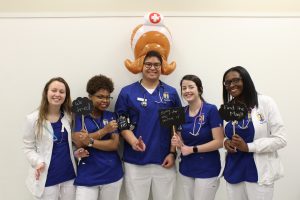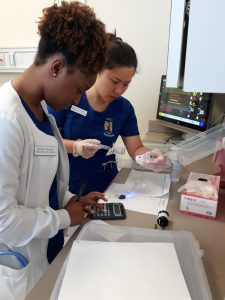 Lori Hubbard had an idea two years ago as she was solving puzzles and working to free her family from an escape room in Cary, North Carolina.
Lori Hubbard had an idea two years ago as she was solving puzzles and working to free her family from an escape room in Cary, North Carolina.
She thought an escape room could make an interesting setting to teach UNC Greensboro School of Nursing students how to quickly respond to patients using the few clues they’re given.
Instead of finding pictures for a photographer’s portfolio, which was the scenario Hubbard faced with her family, she wondered if her students could collect information hidden in an escape room to populate a sick patient’s chart.
“I was looking around and I said, ‘This would be so awesome if a hospital room was the setting,’” said Hubbard, a UNCG clinical instructor. “And then the wheels turned some more, and I decided to propose the idea of an escape room to senior Lloyd International Honors College students I would be working with the following semester.”
The coronavirus outbreak has forced universities to adjust on the fly. In-person classes have moved online, and professors are looking for innovative ways to teach students instead of giving the same long lectures they did in the past. Everyone is thinking differently.
Over two days in early March, a small group of School of Nursing faculty members got creative and transformed a simulation laboratory on the fourth floor of the Moore Building into an escape room. They locked clues in boxes, placed 11 puzzles around the room, and put nearly every senior nursing student through one of the most unique simulations the class had ever encountered.
As it turned out, it was the last simulation for the seniors before they graduate in May.
“When we are in real-world practice, with every case we have to solve puzzles,” said Tammy Hall, a clinical instructor who started researching the use of escape rooms to teach nursing students while completing her Master of Science in Nursing (MSN) degree at UNCG. “And it makes our brains just start to put pieces together.”
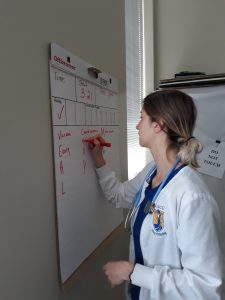 Every student in the School of Nursing’s senior class was sent an email describing the scenario for UNCG’s escape room. An expectant mother had been admitted to a hospital with preeclampsia, which is a serious condition characterized by high blood pressure.
Every student in the School of Nursing’s senior class was sent an email describing the scenario for UNCG’s escape room. An expectant mother had been admitted to a hospital with preeclampsia, which is a serious condition characterized by high blood pressure.
Students were put into small teams before entering the escape room. Once inside, they had to assess the expectant mother and her unborn baby. They were required to perform nursing skills and processes that they had been taught in their classes and clinicals to get keys that unlocked boxes to their next clues.
If teams didn’t quickly treat the preeclampsia, the expectant mother – played by the School of Nursing’s birthing simulator known as SimMom and voiced by a faculty member – would suffer a seizure. In that case, a team would not successfully “escape” the room.
“Most seniors said that was the best simulation they ever had, and they wish we would’ve done that before now,” said Crystal Lamb, a clinical assistant professor and the School of Nursing’s simulation coordinator. “But they don’t realize what it takes to do it.”
Paulette Wyatt Haugh, who earned her Bachelor of Science in Nursing degree from UNCG in 2018, collaborated with Hubbard to investigate educational escape rooms and draft an initial scenario. Hall expanded upon their research as an MSN student.
Hubbard and Hall also met with gamemasters who set up escape rooms around North Carolina to find out what elements they needed to include in the elaborate simulation they were designing with Lamb. Some puzzles involved IV bags and fetal monitoring strips.
“There’s got to be a flow through the room and a way that the participants work through the puzzles. That’s really what we wanted to talk about with gamemasters who design these things for a living, but we did have to modify it slightly for academia.” – Lori Hubbard
Around six nursing faculty members volunteered to test out the escape room before it was opened to students. Once seniors went through it, Hubbard, Hall, and Lamb were able to identify what material students had retained from their classes and clinicals.
Based on its success, other nursing faculty members have discussed creating an escape room for their classes. Several local hospitals have also spoken to the School of Nursing about designing an escape room to teach their nurses.
“The tentacles of this are even stretching beyond the School of Nursing,” Hall said.
Story by Alex Abrams, School of Nursing
Photography by Alex Abrams, Lori Hubbard, and Crystal Lamb, School of Nursing
